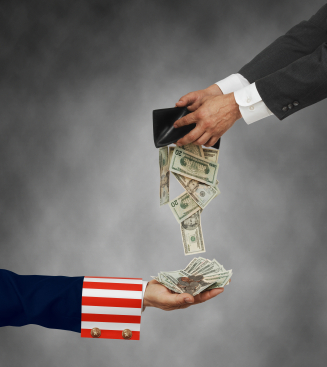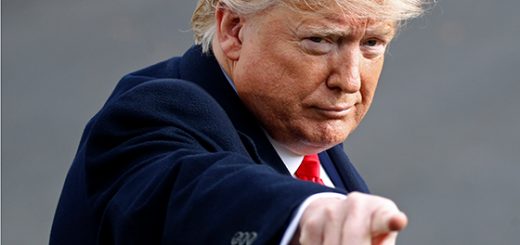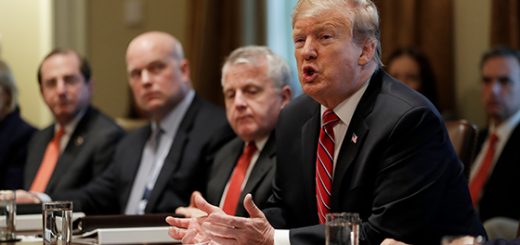Here comes the Tax Man.
We’re about to get walloped by taxes. Between the hidden taxes buried in looming health care reform, the targeting of those that earn $250,000 or more and the expiration at the end of this year of the tax cuts implemented by President Bush, we are all soon going to be paying our bills out of noticeably smaller net paychecks.
All three of those factors deserve a thorough airing, but let’s focus for now on that magic number of $250,000. President Obama, during the campaign of 2008, drew a line in the sand at $250,000 in annual household income. If you earn less than $250,000, he said, your taxes aren’t going up. But if you earn more than $250,000, it’s only “fair” that you “contribute” more of your income.
It was both politically astute and shockingly cynical.
It was politically astute because so few households have incomes of $250,000. According to the IRS, only 1.5 percent of all returns filed show incomes of $250,000 or more. So when candidate Obama drew the line at a quarter million dollars, he calculated that 98 percent of the people listening wouldn’t mind.
What this man who has never run a business and never held a real job doesn’t understand is that placing onerous taxes on the top earners limits opportunity for those further down the economic ladder.
Here’s why.
Government stimulus, as we have painfully learned, doesn’t create jobs. Large corporations, impressive as they are, don’t really create that many jobs. It is small businesses – entrepreneurs – that account for the bulk of job creation in the United States. And the three facts that a huge tax increase is now less than a year away, that earners of $250,000 have been singled out; and that unemployment is stuck at the highest level in a generation; are not disconnected.
Because of the way the tax code is written, the tax consequences of closely held businesses flow directly onto the personal returns of those that own the business. Many of those one and a half percent of tax returns showing taxable income of more than $250,000 are the result of the fact that the household earns its living from owning a car wash or a dry cleaner, or maybe a plumbing business or a retail store of some kind. If the business has a good year, that good fortune flows directly onto the family’s 1040 tax return.
So, Paul, what’s wrong with that?
At some level, nothing is wrong with it. Every employed American should pay taxes. It gives us a civically healthy stake in what the politicians do with our money.
But treating high-earners as if they have somehow gotten caught trying to get away with something does violence to the very processes that are essential to a vibrant economy.
When a small business has a good year, it emboldens the owner to expand, to invest the earnings in new products or a new idea. Those investments are the seeds of job creation. Tax those earnings away at punitive rates, however, and that investment never happens. Absent that investment, that act of optimism, there is little chance of job growth.
But that’s not all. The prospect of a better than average income is important to entrepreneurism. Nobody would take the risks and suffer the heartache and sleepless nights attendant to owning a business if there didn’t exist at least the chance of making a lot of money.
Listen to KTBB for any length of time and the American Miracle will play in your ears. The commercials that are the backbone of this business are from those who have risked everything in order to be able to offer you a better floor in your home, a better way to water your lawn, a nice car to drive, a place to get your business cards printed or a great place to eat, drink and spend time with people whose company you enjoy.
God bless them every one. Because their willingness to risk it all is what has set America apart for nearly two and a half centuries and for that ineffable good they should be spared a ruinously high marginal tax rate.
Put these people in the tax man’s cross hairs – tax high earners at punitive rates – and you’re not just taxing wealth. You’re taxing dreams and aspirations – the very stuff of which America is made.
And we all know that when you tax something, you get less of it.









Once again Paul… very well put. I love your insight… keep it up.
As a soon-to-be father and a provider for my home I am pursuing a career in the I.T. field. I would never say that I’m not going to try as hard as I can, but the incentives coming from the government don’t necessarily create a “go get ’em” atmosphere.
98% of the income tax received from the federal government come from the top 50% of the earners. Sure the rich should bear more weight… but what is enough?
http://www.rickandandrea.com/rick/
Eliminate all deductions. Go to a flat tax.